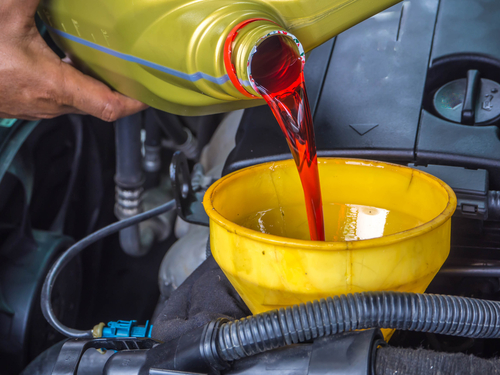The Slick Truth: Unraveling the Mysteries of Oil Changes

Oil changes are an essential part of vehicle maintenance, but there seems to be a cloud of uncertainty surrounding the topic. How often should you change your oil? What type of oil should you use? In this blog, we will unravel the mysteries of oil changes and provide you with the information you need to keep your engine running smoothly.
1. Understanding the Purpose of Oil:
Before diving into the specifics of oil changes, it’s important to understand why oil is crucial for your vehicle. Oil acts as a lubricant for the engine, reducing friction between moving parts and preventing excessive wear and damage. Additionally, it helps regulate engine temperature by dissipating heat and removing contaminants and debris. Regular oil changes ensure the oil continues to perform its vital functions effectively.
2. Frequency of Oil Changes:
One of the most common questions regarding oil changes is how often they should be done. The answer depends on various factors, including the age of your vehicle, driving conditions, and the type of oil you use. As a general guideline, most vehicles require an oil change every 5,000 to 7,500 miles or every six months, whichever comes first. However, newer vehicles equipped with synthetic oil may have longer recommended intervals of 7,500 to 10,000 miles. Consult your vehicle’s owner manual or speak with a trusted mechanic to determine the ideal frequency for your specific vehicle.
3. Choosing the Right Oil:
Not all oils are created equal, and choosing the right one for your vehicle is essential. There are three main types of oil available: conventional, synthetic blend, and full synthetic. Conventional oil, made from crude oil, is the most common and affordable option. Synthetic blend oil combines conventional and synthetic oils, offering improved performance and protection. Full synthetic oil, on the other hand, is entirely man-made and provides the highest levels of lubrication and protection. Consider your vehicle’s needs, budget, and manufacturer’s recommendations when selecting the right oil.
4. Signs Your Oil Needs Changing:
While following a regular maintenance schedule is crucial, there are also signs that may indicate your oil needs changing before the recommended interval. If you notice a dark and dirty appearance, a burnt smell, or a decrease in engine performance, it’s a good indication that your oil is dirty and needs to be replaced. Additionally, paying attention to the oil pressure gauge and check engine light can provide vital signals that your oil needs attention. Never ignore these signs, as neglecting to change your oil can lead to significant engine damage.
5. DIY or Professional Service:
Now that we’ve covered the basics of oil changes, you may be wondering whether it’s best to do it yourself or seek professional service. While some car owners prefer to change their oil at home, it’s important to note that professional service offers benefits beyond just convenience. Professional technicians have the knowledge, experience, and equipment to perform the oil change accurately. They can also conduct a thorough inspection of your vehicle, identifying any potential issues before they become major problems. Ultimately, the choice between DIY and professional service depends on your comfort level, time constraints, and preferences.
Summary:
Oil changes are a fundamental part of vehicle maintenance, ensuring the longevity and performance of your engine. By understanding the purpose of oil, determining the frequency of changes, choosing the right oil, and paying attention to your vehicle’s signals, you can stay on top of your oil change needs. Whether you choose to tackle the task yourself or leave it to the professionals, the important thing is to prioritize regular oil changes. By doing so, you’ll keep your engine running smoothly and extend the life of your vehicle.
